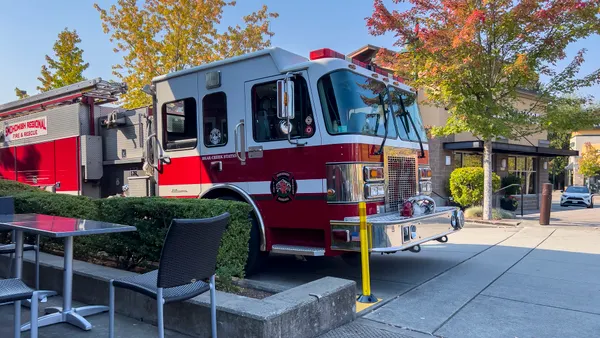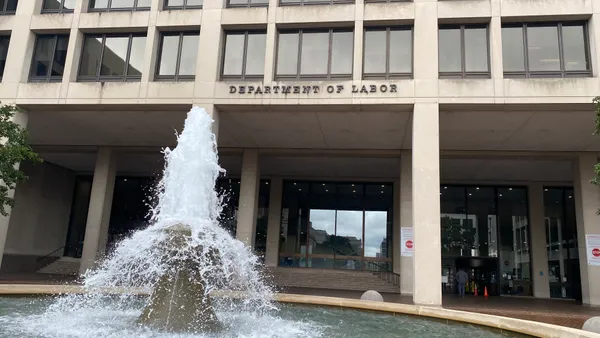Dive Brief:
- Manufacturer AG Equipment Co. allegedly violated Title VII of the Civil Rights Act of 1964 when it fired 10 workers for not receiving the COVID-19 vaccine without considering their religious or medical exemption requests, the U.S. Equal Employment Opportunity Commission said in a lawsuit filed Friday (EEOC v. AG Equipment Co.).
- According to the complaint, the shop foreman told workers at a meeting that there were “not going to be any exemptions” and the company “doesn’t have any jobs that will work with exemptions.” He allegedly said all unvaccinated workers who requested exemptions would be fired by the vaccination deadline.
- “While the law does not require employers to grant every request for religious or disability accommodation, they generally must do so when accommodation can be provided reasonably and safely,” Andrea Baran, regional attorney for EEOC’s St. Louis district, said in an agency press release.
Dive Insight:
The debate over COVID-19 vaccination requirements may have cooled down considerably since the early years of the pandemic, but companies’ handling of vaccination exemption requests continue to reverberate in the legal realm.
Courts have been especially careful recently with regard to religious exemption requests; in May, an Ohio district court denied an employer’s request for summary judgment and held that a jury should decide if a worker’s religious exemption request to the COVID vaccine was sincere or “truly medical and masked by religious language.”
Although the worker cited Bible passages and expressed concerns about the use of “aborted fetal cells,” she expressed other concerns “conflicting” with her religious sincerity arguments, the court said, including that she usually talks with medical professionals to determine if a vaccination’s benefits outweigh the drawbacks and that she was concerned with the vaccine being in an “experimental phase.”
In a similar case, the 7th U.S. Circuit Court of Appeals ruled July 29 that two workers could proceed with claims that they were denied religious exemptions from receiving the COVID vaccine — despite their requests also involving secular reasoning.
“The fact that an accommodation request also invokes or, as here, even turns upon secular considerations, does not negate its religious nature,” two judges in the case, Passarella and Dottenwhy v. Aspirus, Inc., determined.
Both decisions came in the wake of Groff v. DeJoy, a June 2023 Supreme Court case that made it more difficult for employers to turn down religious accommodation requests.
EEOC’s case against AG Equipment may turn on more straightforward factors, as EEOC did not allege the company considered and then rejected accommodation requests — rather, the agency said, it refused to consider them at all.
“Workers are not required to set aside their religious beliefs when they walk in the door at work,” David Davis, director of EEOC’s St. Louis district office, said in the agency’s release. “Employers must work with employees when accommodations are requested and explore whether adjustments are possible and reasonable.”
AG Equipment did not respond to a request for comment by press time.












